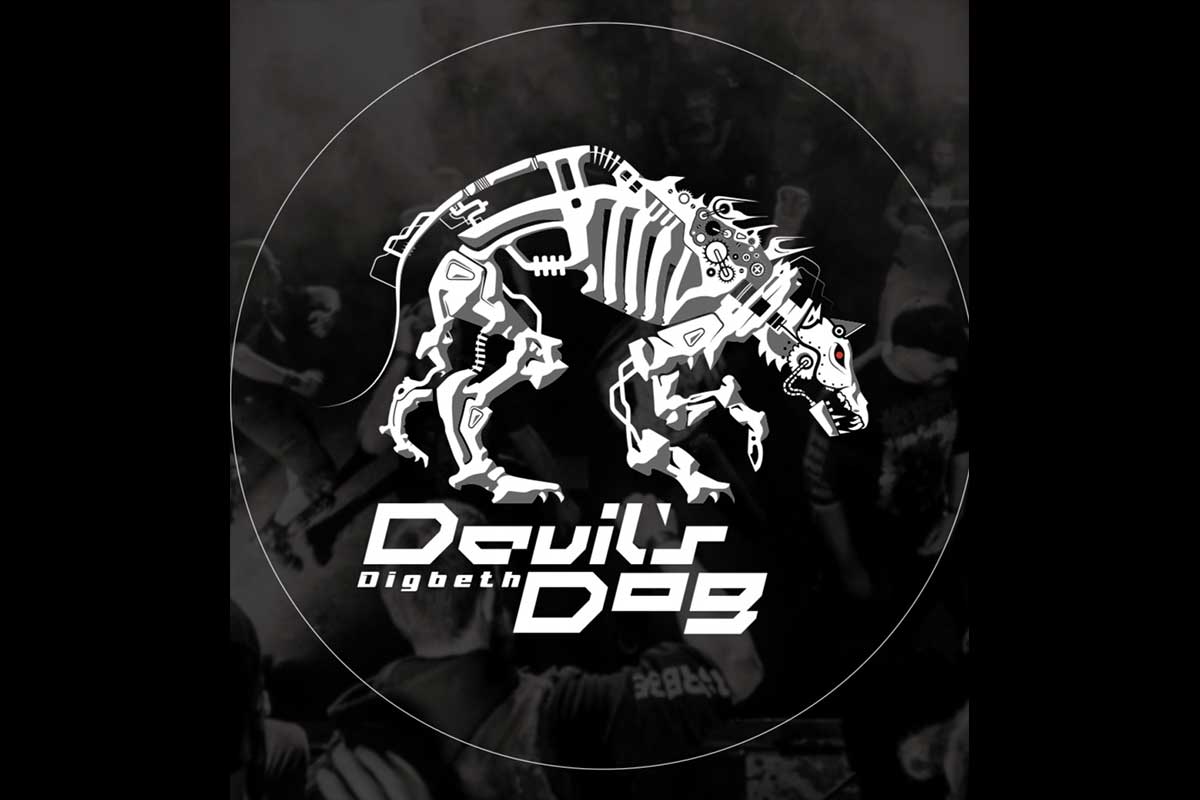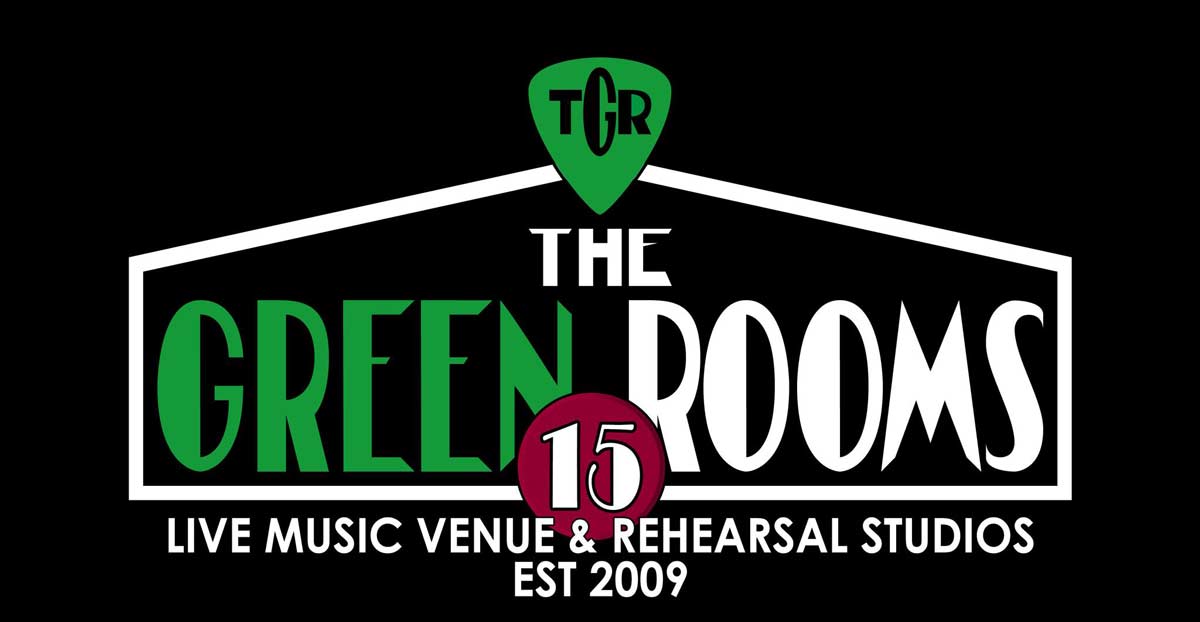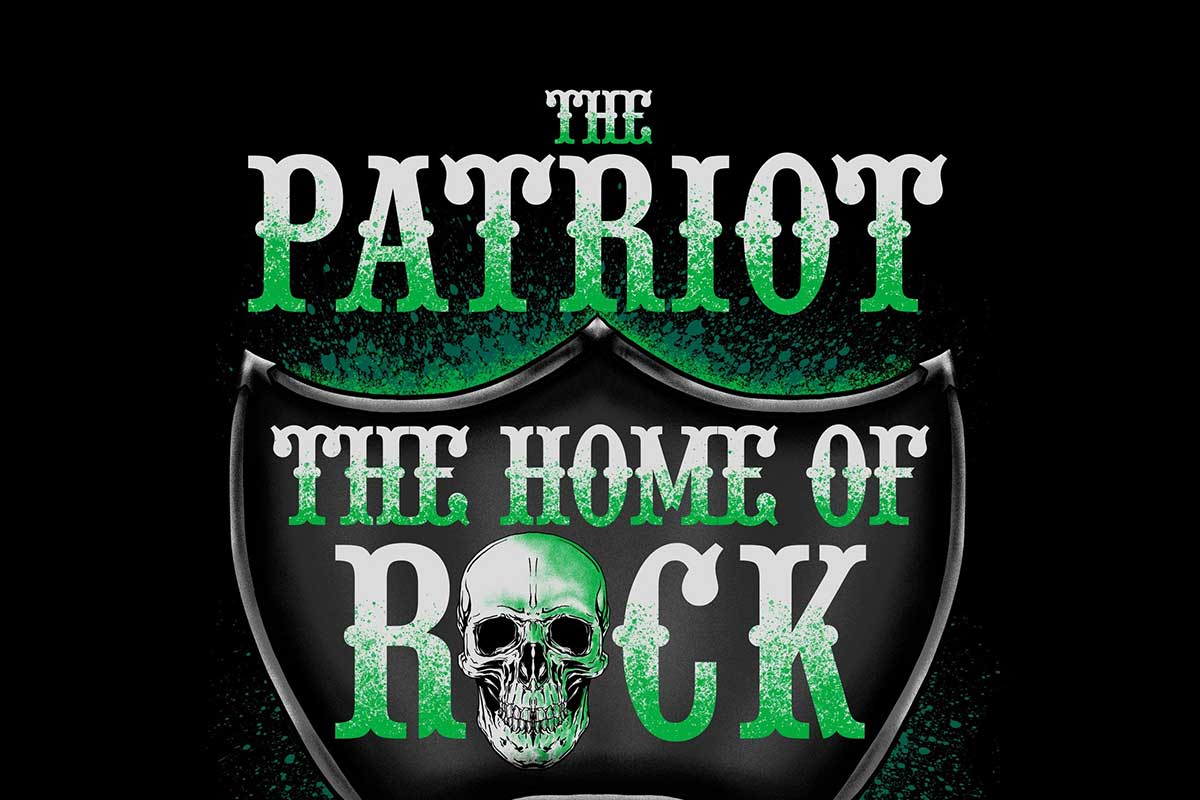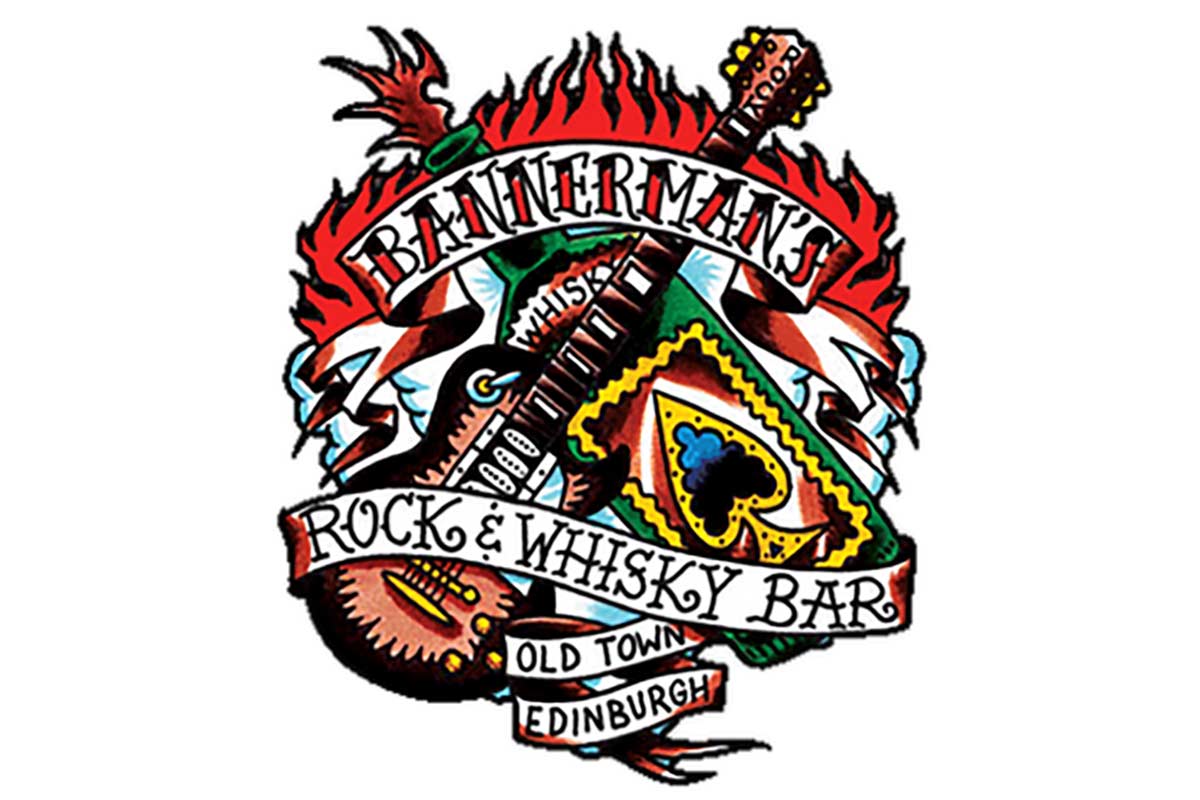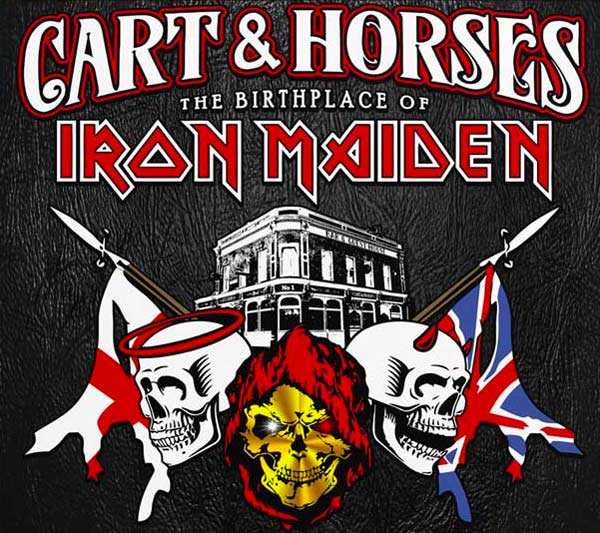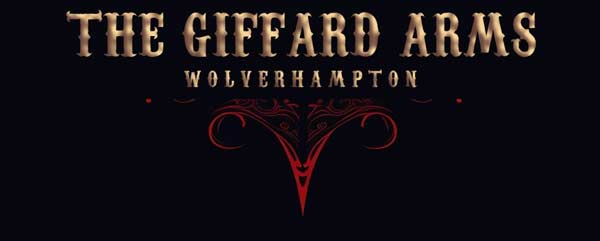With the success of Backstreet Symphony, you wonder if there was pressure on Thunder when writing the follow-up, Laughing On Judgement Day. “Not really,” Luke Morley says in Part Three of the MetalTalk interview with Paul Monkhouse. “Pressure to me is having to work in a coal mine. That’s fucking pressure. Rock’ n’ roll isn’t really pressure. You want it to be as good as it can be, but I’ve never really felt outside pressure. I put a lot of pressure on myself, I guess, with the songwriting and everything.
“We obviously wanted to enjoy the success that Backstreet Symphony had. So we did, and when it came to the second album, it was like, OK, right, heads down again. I’m gonna have to get to work here.”
Laughing On Judgement Day
“I did a few different things,” Luke says. “I went out and lived in L.A. for four months, just wanting to soak a slightly different atmosphere and just changed things around a little bit. Then I came home and started writing. This was a great time. We went in the studio and then the only drag was that Mike Fraser wasn’t available, although in the end, it didn’t actually make too much of a difference. We got a guy called David Bascombe to mix, and Dave actually had worked with Terraplane briefly. But he went on after that and made some really good albums with Tears For Fears. He did Songs From The Big Chair and The Seeds Of Love, which are both fantastic sounding.
“Dave did a great job and it still sounded like us. It was intense and after a couple of weeks, we reached the conclusion that Andy had done his bit really. We didn’t really need him anymore, and he was very good about it. I just said to him, mate, you know, you’re absolutely crucial to the band starting. But I’ve got to the point now where we know what we’re doing. He took it very, very well, and he said, ‘ok, no, absolutely. Go on with what you’re doing.’
“It wasn’t the intention when we started making the album, but I ended up being the producer if you like. Once again an enjoyable album to make. We did it in a bit more style than we did the first one because we had a bit of a big budget. So we went to a lovely studio called Outside Studios, which I think belonged to Gilmore at one point. I think Trevor Horn owns it now. Lovely studio. We took a bit more time.
“My only criticism of the album now is it’s probably a bit long. But I think my defence on that is this was the advent of the CD, so I can get more songs on. It’s not necessarily a good thing, I would say.
“I think there’s maybe a couple of songs that no… I don’t know. I mean, people will argue with me. But I think personally, with my editing hat on now, there are maybe a couple of tunes that wouldn’t have made it. But it’s of its time, and I think there are good songs on it. I mean, Low Life In High Places is a very important song for Thunder because I think that broke down a lot of water for us in Europe, maybe made people realise there’s a bit more to the band than just straight-ahead blues rock, lyrically and stuff. A Better Man as well, I think was an important song. For a rock band to do something that’s that gentle or intimate is not always the way. Not all bands can do it or wanna do it particularly. But certainly, from a songwriting point of view, I was very pleased with that song because this is showing another side to what we can do. So you can feel the band expanding through on Judgement Day.”
Laughing on Judgement Day is a great album, I say, just held back from the number-one slot by Kylie’s Greatest Hits. “Yes. [Laughs] Well, what can you do?” Luke says. “We were number two. She was number one. There are worse places to be than underneath Kylie. It’s an old joke.”
Behind Closed Doors
With songs like Stand Up, Preaching From a Chair and Too Scared To Live, Thunder were continuing the run of really great solid albums.
“With this album, it’s interesting because what happened between album one and during the making of album two was grunge,” Luke says. “That changed the landscape massively in America for us. That made it very difficult for us in America. The first album did quite well, although we’d not gone out there. We had not had the opportunity to go out and tour. We were set to go out and tour and we had to cancel.
“We were supposed to go out with David Lee Roth and Cinderella, but the tickets didn’t sell. One of the contributory factors to that was that a lot of the rock radio stations in America changed their format almost overnight as soon as grunge happened. I think we found ourselves lumped in with a lot of what I would describe as Hair Metal bands, which I don’t think we ever really were. We were marketed that way, I guess, in the States.
“So that backfired on us a little bit. That all happened, but we hadn’t given up hope. So we thought, well, what to do with album three? We’ll go and make it in America that way we can get Geffen Records more involved. So that’s what we did. So we stuck a pin in a map. We knew we were gonna finish the mix in L.A. But we thought we’d stick a pin in the map and go somewhere else in America. We ended up in a studio called Southern Tracks in Georgia, Atlanta.
“That was a studio with a great rock heritage Lynyrd Skynyrd, Black Crowes, Allman Brothers had all worked there. It was a lovely studio and it was really interesting being there for six weeks. It was a complete culture shock, the south of America is very, very different. But it was fascinating. Onwards from there, we went to L.A. to mix and do some more overdubs.
“Lots of stuff, because I’d spent some time in L.A. influenced the writing. I was a bit slightly pissed off with some of the grunge acts, being so miserable and not putting on a show. I just felt that the music was really good, but their attitude left a bit to be desired. And at the end of the day, it’s only rock ‘n’ roll. Also, it was quite tense for a while because of the Rodney King business. And, oh, crikey, the mad thing that happened while we were there was the O.J. Simpson pickup truck thing.
“So it was a slightly weird, slightly menacing atmosphere. Also being in a very urban environment is very different because normally, we took out an English countryside or the British countryside somewhere and set ourselves up miles from anything. And all of a sudden, we were right in the thick of all of this kind of stuff.
“So that obviously had a bit of an influence on it. But we still had a great time. The process was a bit more broken. I think Danny was having his second child at the time, so he was back and forth a little bit. I think Harry might have been having his first child as well. So, a lot of the time, it was just myself and Ben and Mickey, the bass player, that was there. It was a different way of making a record, for us and I’m glad we did it. I learned a lot from the process. Fraser came back to do that one, which was great. I enjoyed it and I enjoyed being in the States for a few weeks.
“I think you can actually hear the influence of grunge in it oddly enough, although it certainly wasn’t done consciously. Moth To The Flame. You can’t help but absorb what’s going on around you and that gonna come out. It’s stylistically quite different to the first album and the second album. So you can see it get a path kind of emerging. It’s maybe taking on some very difficult subjects as well, lyrically. It Happened in This Town… crikey.. Til the River Runs Dry. These are dark things to write about, domestic violence and infanticide. So that brought the kind of darkness to the album really, I suppose, which I think some people struggled with.
“Not the band. I think some of our fans maybe wanted us to keep making She’s So Fine or Dirty Love. And of course, as anybody will tell you, you can’t just go and do the same thing over and over and over and over. We had no desire to do that.
“So as a person who writes the songs, the idea of just spending the rest of my life writing songs about drinking and chasing girls would make me suicidal. You gotta try as a writer to stretch yourself and write about things that may be a little bit more difficult and sometimes, challenging.
“You have to be true to who you are and just hope enough people like it.”
You can read all Four Parts of the Luke Morley interview here.
Backstreet Symphony will be pressed as a double LP, one gold disc and one silver disc.
Laughing On Judgement Day is a double LP, one white disc and one blue disc.
Laughing On Judgement Day is a double LP, one white disc and one blue disc.
The albums will also be available as a CD Digipak. Visit https://thunderband.lnk.to/bsslojdbcdPR for more details.



